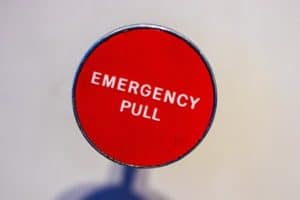Things You Must Know During A Dental Emergency
Medical emergencies are never fun, but dental emergencies can be especially difficult for many people. Accidents which damage teeth can happen anytime day or night, and it’s often tricky to know when you should make a trip to the dentist or the ER and when you should deal with it yourself. Getting the right information and tools can help you learn how to evaluate dental emergencies and what steps you should take to care for yourself and your family.
Treating Common Dental Emergencies
Let’s start by going over some of the most common dental emergencies and talk about some steps you can take to treat them. There’s no substitute for professional dental care, but there are things you can do to alleviate pain and help your dentist give you the best possible outcome under the circumstances.
The most common dental emergency is a chipped or broken tooth. This can range from a chip in the hard enamel that forms the exterior of the tooth to a full-on traumatic break that cuts through the hard exterior and exposes the dentin and pulp inside. A chipped tooth is painless, as enamel contains no nerves or other living tissue and cannot feel pain. In general, a chipped tooth is a cosmetic issue with easy fixes ranging from a dental bond to a cap or other prosthesis. A more serious break may be quite painful indeed and require more serious solutions ranging from a cap to the extraction and replacement of the whole tooth. Your dentist can make that evaluation and prescribe the best course of action.
If the worst happens and your break a tooth—or knock it out entirely—here are the steps to follow
- Gather the broken pieces and place them in a clean, dry container for transport to the dentist.
- Rinse the remaining tooth with warm water to remove dirt and debris.
- If an injury broke the tooth, place a cold compress on the area to help prevent swelling.
- Call your dentist immediately to arrange an appointment. If you can see yellow dentin or red, exposed pulp—or if the tooth was knocked out entirely—see a dentist immediately. If you cannot get in touch with your dentist, go to an emergency room.
Other Emergency Care
Breaking or knocking out a tooth is the most common kind of dental emergency, there are some less dramatic problems that may require emergency dental care. Dental pain of any kind requires attention, and severe dental pain should be examined as quickly as possible as it may indicate a dental abscess or similar serious issue. While topical dental painkillers do exist, they’re at best a temporary measure. The best response to serious or chronic dental pain is to call your dentist and let them guide you through what happens next. They may suggest a next-day appointment—most dentists leave some space in their schedule for emergencies—or they may advise you to go to the emergency room.
Dental emergencies are serious, but if you’re knowledgeable and prepared you can increase the odds of a favorable outcome. The important thing is to stay calm, take care of the immediate concerns, and contact your dentist or an emergency room as soon as possible.
Plage Dentistry is here for all your dental needs. Please contact us to make an appointment.
